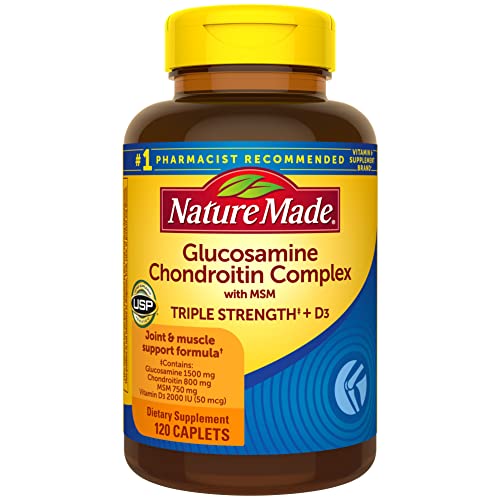HPV Vaccine Protects Men for Years: New Study
Quick Summary: A long-term study shows the HPV vaccine is highly effective at preventing genital warts, lesions, and anal cancer in men for at least 10 years. Even men who got a placebo at first benefited from getting the vaccine later.
What The Research Found
This research looked at how well the HPV vaccine works over a long period. The study found:
- Big Protection: Men who got the HPV vaccine were much less likely to get genital warts, lesions, and anal cancer caused by certain types of HPV.
- Lasting Effects: The vaccine's protection lasted for at least 9.5 years.
- Catch-Up Works: Even men who didn't get the vaccine at first and later got it still saw a big reduction in HPV-related problems.
- Safe: No serious side effects from the vaccine were reported.
Study Details
- Who was studied: Men aged 16-26, including men who have sex with men (MSM) and heterosexual men.
- How long: The study followed men for up to 10 years.
- What they took: Some men got the HPV vaccine, while others initially got a placebo (a shot with no medicine). Later, those who got the placebo were offered the vaccine.
What This Means For You
- Talk to your doctor: If you're a man aged 16-26, talk to your doctor about getting the HPV vaccine. It can protect you from serious health problems.
- Even if you're older: If you didn't get the vaccine when you were younger, it might still be helpful to get it now. Talk to your doctor.
- Protect your health: The HPV vaccine is a safe and effective way to protect yourself from HPV-related diseases.
Study Limitations
- Not perfect: The study wasn't "blinded" (meaning everyone knew who got the vaccine). This could slightly affect the results.
- Shorter follow-up: Men who got the vaccine later were followed for a shorter time.
- Specific HPV types: The vaccine protects against specific HPV types (6, 11, 16, and 18), but not all.
- Funding: The study was funded by the vaccine manufacturer.
Technical Analysis Details
Key Findings
The quadrivalent HPV vaccine (targeting types 6, 11, 16, 18) demonstrated durable protection against HPV-related external genital warts, lesions, and anal intraepithelial neoplasia/anal cancer in men over 10 years. In the early vaccination group (received all 3 doses pre-study), no new cases of HPV6/11-related genital warts or HPV6/11/16/18-related lesions were observed during long-term follow-up. Among men who have sex with men (MSM), the vaccine reduced anal disease incidence by 97.7% (20.5 vs. 906.2 cases per 10,000 person-years). Catch-up vaccination (post-placebo) also showed strong efficacy, with zero new cases of genital warts or lesions and a 88.6% reduction in anal disease. No vaccine-related serious adverse events were reported.
Study Design
- Type: Open-label, long-term extension of a randomized, placebo-controlled, phase 3 trial.
- Base Study Duration: 3 years (original trial).
- Extension Study Duration: 7 years (total follow-up: 10 years).
- Sample Size: 1,803 participants (827 heterosexual men, 109 MSM in early vaccination group; 739 heterosexual men, 128 MSM in catch-up group).
- Population: Men aged 16–26 years (MSM) or 16–23 years (heterosexual) across 46 centers in 16 countries. Excluded: men with baseline HPV-related disease or non-HPV STIs.
Dosage & Administration
- Vaccine: Quadrivalent HPV vaccine (types 6, 11, 16, 18).
- Dosing Schedule: Three doses (day 1, month 2, month 6).
- Administration: 0.5 mL intramuscular injection into the deltoid muscle.
- Placebo: Saline injections administered identically.
Results & Efficacy
- Early Vaccination Group:
- HPV6/11 genital warts: 0.0 (95% CI 0.0–8.7) vs. 137.3 (83.9–212.1) in placebo (p < 0.001).
- HPV6/11/16/18 genital lesions: 0.0 (0.0–7.7) vs. 140.4 (89.0–210.7) in placebo (p < 0.001).
- HPV-related anal disease in MSM: 20.5 (0.5–114.4) vs. 906.2 (553.5–1,399.5) in placebo (p < 0.001).
- Catch-Up Vaccination Group:
- HPV6/11 genital warts: 0 cases post-vaccination vs. 149.6 (101.6–212.3) pre-vaccination.
- HPV6/11/16/18 genital lesions: 0 vs. 155.1 (108.0–215.7).
- Anal disease in MSM: 101.3 (32.9–236.3) vs. 886.0 (583.9–1,289.1).
- Efficacy Duration: Protection persisted for at least 9.5 years post-vaccination in early group.
Limitations
- Open-label extension: Potential for bias due to lack of blinding.
- Shorter follow-up in catch-up group: Median 4.7 years vs. 9.5 years in early group.
- Exclusion criteria: Results may not generalize to men with prior HPV-related disease or STIs.
- Observational design: Extension study lacked randomization, limiting causal inference.
- HPV type specificity: Does not address non-vaccine HPV types or natural immunity.
Clinical Relevance
This study supports HPV vaccination for men aged 16–26 years, including MSM, to prevent genital warts, lesions, and anal cancer linked to HPV6, 11, 16, and 18. The catch-up vaccination group’s results suggest vaccination remains beneficial even after initial placebo exposure. The long-term safety profile reinforces its use in public health programs. Clinicians should prioritize early vaccination but consider offering catch-up doses to unvaccinated men, particularly MSM, to reduce disease burden.
Conflict of Interest Note: Funded by Merck Sharp & Dohme, manufacturer of the quadrivalent HPV vaccine.
Original Study Reference
Efficacy, immunogenicity, and safety of a quadrivalent HPV vaccine in men: results of an open-label, long-term extension of a randomised, placebo-controlled, phase 3 trial.
Source: PubMed
Published: 2022
📄 Read Full Study (PMID: 34780705)




